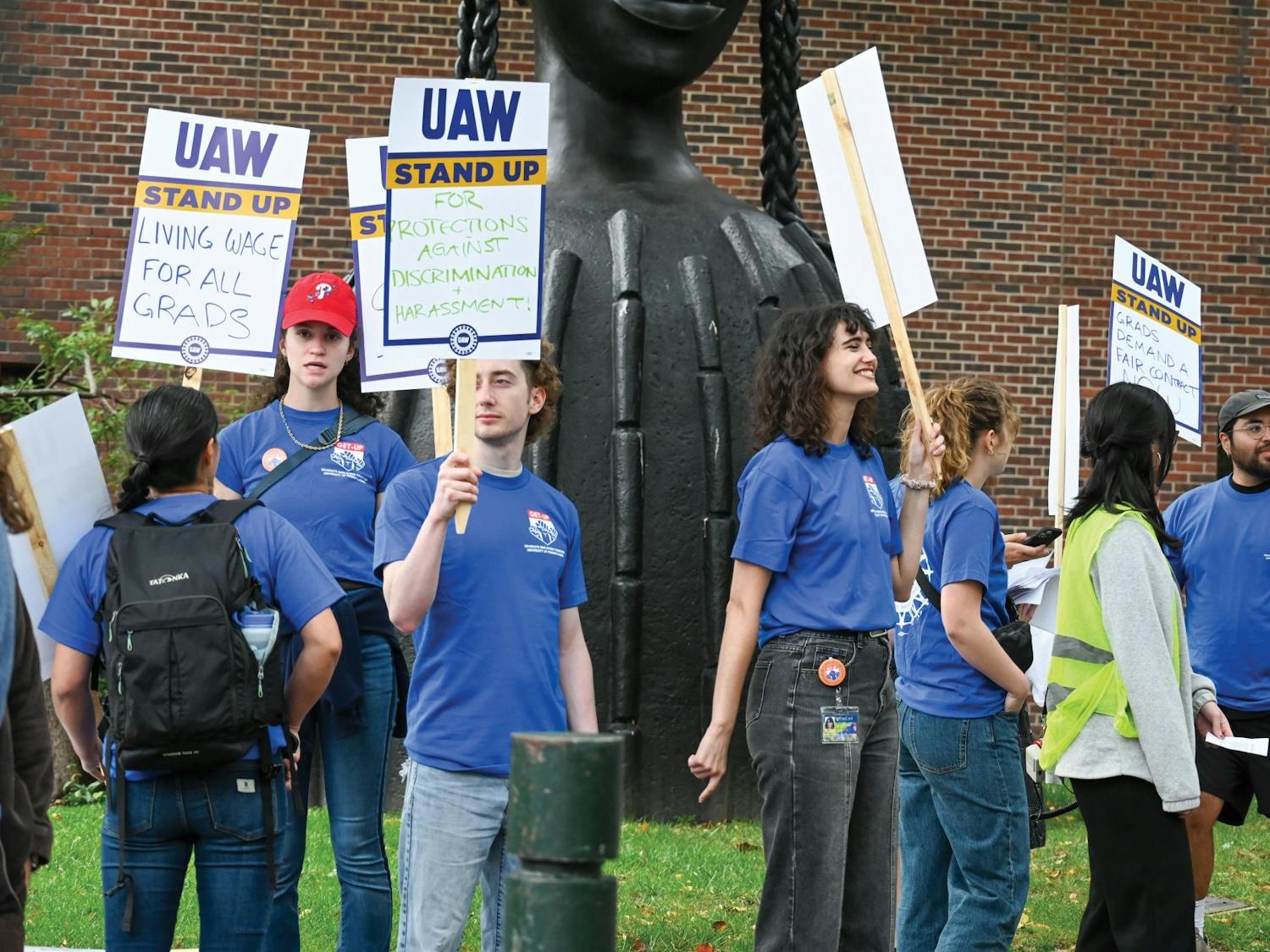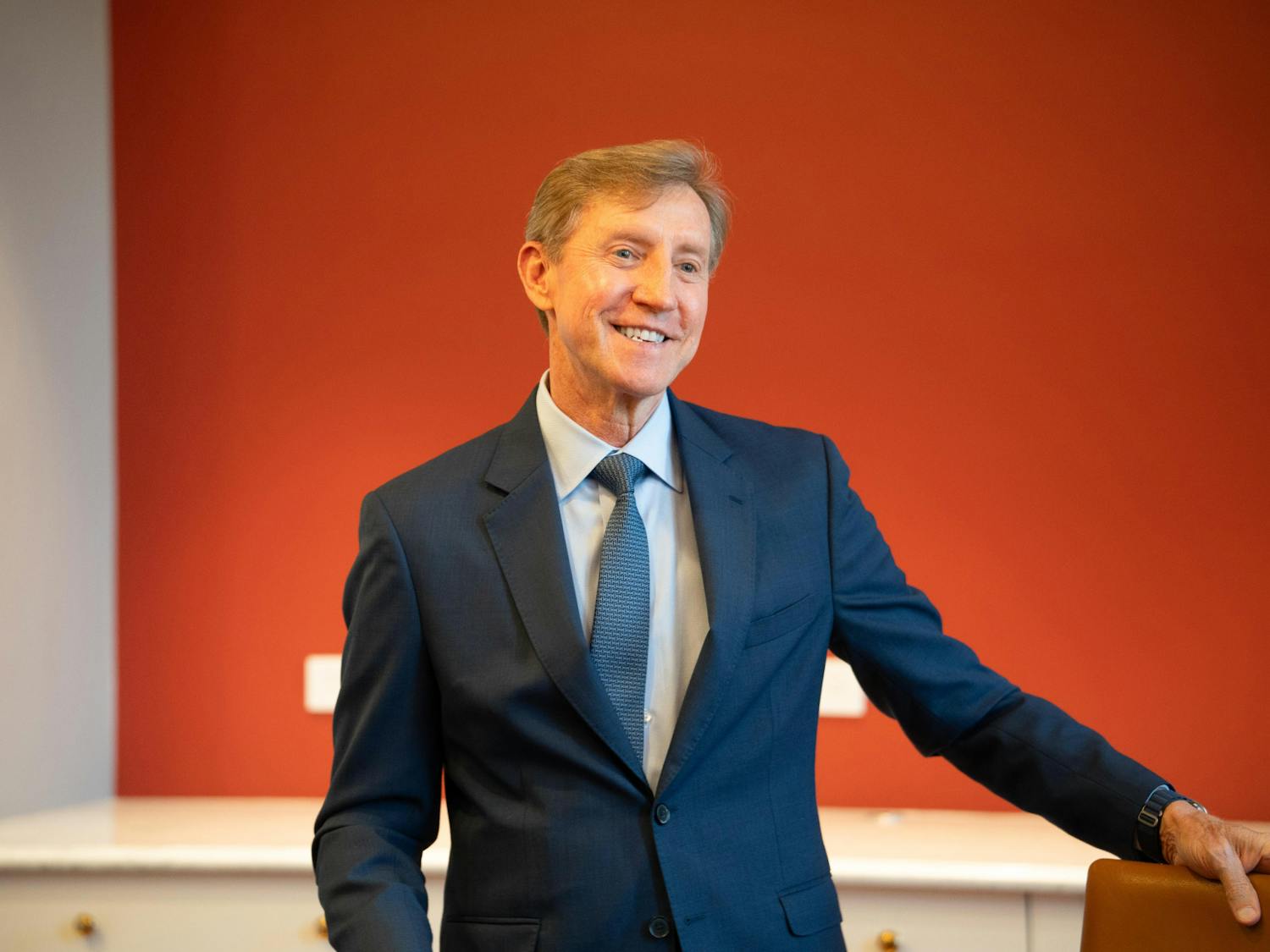The University has announced that Michael Eric Dyson will be joining the Penn faculty as the Avalon Foundation Professor in the Humanities and African-American Studies.
The nationally-recognized scholar will be teaching courses in the Religious Studies department and the Afro-American Studies Program this fall.
"Michael Eric Dyson is an incredible intellectual force," University President Judith Rodin said. "He contributes as a scholar to the academy and as an articulator of pressing social issues to society at large."
With scholarly interests ranging from Martin Luthur King to hip-hop, Dyson focuses much of his research on the black church and the issues facing the contemporary African-American community.
He has written six books, and is a weekly columnist for the Chicago Sun-Times and a weekly radio commentator for Tavis Smiley's National Public Radio Program.
"I'm terribly excited about this opportunity," Dyson said. "To me it represents an opportunity to forge solidarity with a department in mapping out a new direction for African American studies not only at Penn but in the broader national scene as well."
According to Director of the Afro-American Studies Program Tukufu Zuberi, Dyson will play an invaluable role in the growth and expansion of the African American Studies at Penn.
Dyson "is known to be a very good instructor with very good and powerful lectures... he'll stimulate research for overcoming racial conflict in America and a better understanding of the African American situation in America," Zuberi said.
Currently, Penn's Afro-American Studies Program offers students the choice of a major or a minor by taking interdisciplinary courses in historical, cultural, social, political and economic areas relating to the African-American Diaspora.
Under Dyson's guidance, School of Arts and Sciences Dean Samuel Preston said that he hoped that the 30-year-old program would evolve even further.
"Through Professor Dyson's prodigious scholarship and dynamic public presence, he has advanced the dialog on race relations both within and without," Preston said. "He will bring enormous distinction to our African-American Studies program, the Department of Religious Studies and the Penn community."
Dyson, who has been a professor at DePaul University in Chicago for the past three years, has also taught at Columbia and Brown Universities and the University of North Carolina at Chapel Hill.
Dyson is the latest high-profile black scholar to change jobs in what has become a highly competitive recruitment atmosphere among top U.S. universities.
In January, for example, University of Chicago sociology professor Michael Dawson accepted a dual appointment at Harvard University; later that month, African American studies professor K. Anthony Appiah left Harvard for Princeton University.
Similarly, Harvard philosophy professor Cornel West announced in April that he, too, would be transferring to Princeton University, following a dispute with Harvard President Lawrence Summers.
In spite of the high turnover rate of these professors, Zuberi attributed Penn's recruitment of Dyson to the University's committment to maintaining a high academic standard.
"Here at Penn we recruit a lot of high profile professors from the best universities in the country," Zuberi said. "The University has made hires like this in the past -- other professors are distinguished like Dyson, and that's fine and consistent with the University's educational mission."
Dyson, on the other hand, said that this trend does not account for the large number of African-American academics who have yet to receive public recognition.
"It's an odd paradox in the sense that there are certain movements among elite professors at high profile institutions that make news," Dyson said.
"Between the goings and comings of highly visible figures like myself, there are the masses of black intellectuals whose movement and work are not charted."
Dyson stressed the need for African-American studies scholars -- whether highly visible or not -- to become more coherant as a group.
"It's important for all of the intellectuals who are engaged in thinking critically about issues of African Americans and African American life to link arms," Dyson said.
In the end, however, Dyson said that his decision to come to Penn was more based torward the chance to work in such a stimulating and supportive academic environment.
Dyson said that he was looking forward to working with Zuberi, Camille Charles, Guy Ramsey and Mary Frances Berry, among others.
"I'm excited about following [Zuberi's] lead and that of other professors," Dyson said. "They are all superstars who have blazed a path for the prominence of Penn."








